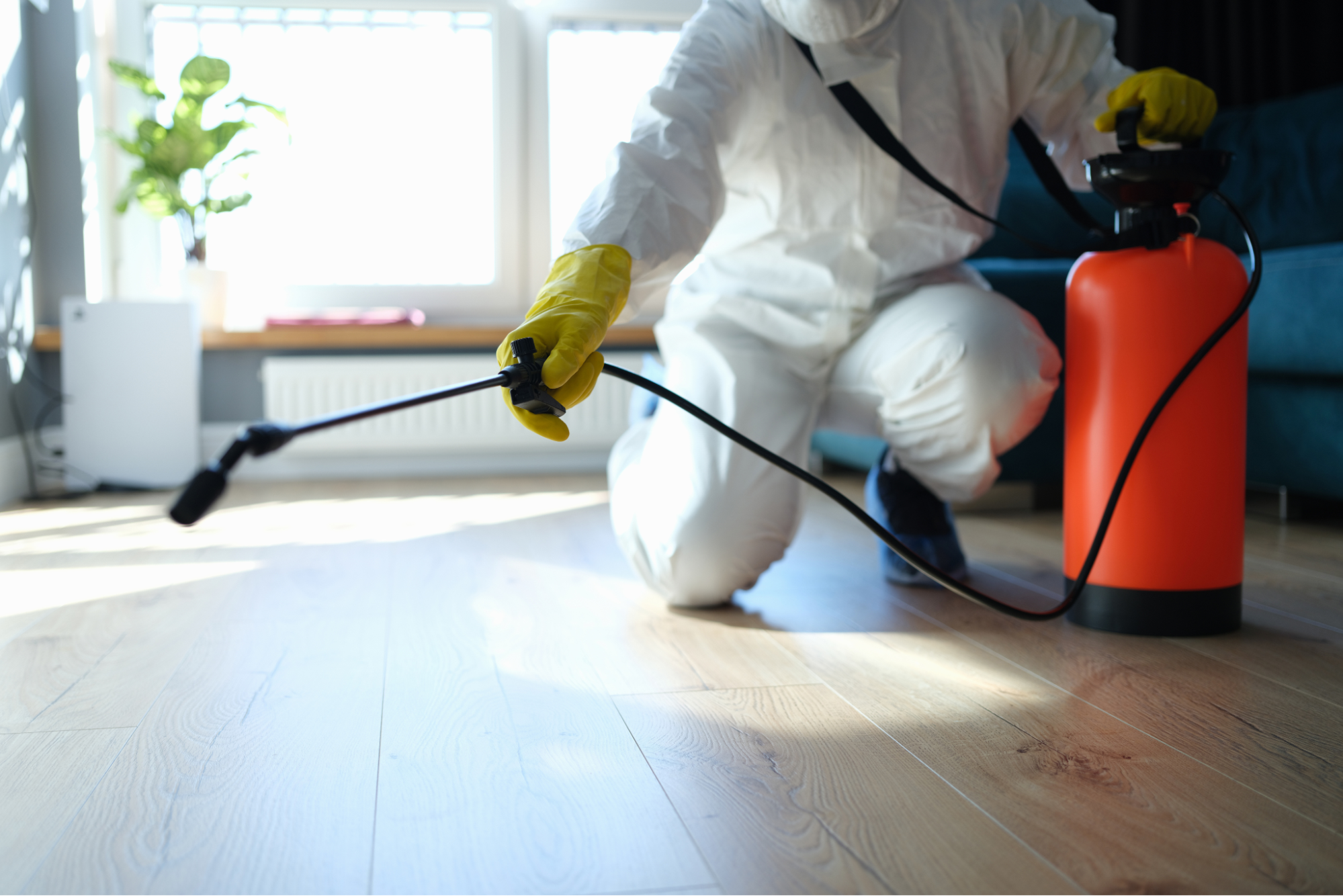A1 Bed Bug Exterminator Charlotte - Reliable and Budget Friendly Services
A1 Bed Bug Exterminator Charlotte - Reliable and Budget Friendly Services
Blog Article
Bed Bug Therapy Failure: Contrasting Chemical Vs. Non-Chemical Solutions
In the world of insect control, specifically when handling the relentless problem of bed bugs, the option in between chemical and non-chemical treatment services can be an essential one. Both methods provide distinct advantages and downsides, influencing variables such as efficiency, security factors to consider, and overall price. By analyzing the nuanced details of each technique, a clearer understanding of which path to seek in resolving a bed bug problem can be achieved.
Performance of Chemical Treatments
Chemical treatments for bed bug problems have been widely recognized for their potent and fast efficiency in removing these bugs. When thinking about the effectiveness of chemical treatments, it is critical to comprehend that they can give a fast and comprehensive option to a bed pest trouble. Specialist pest control operators commonly count on pesticides to target bed pests at numerous phases of their life cycle, consisting of nymphs, eggs, and adults. These chemicals commonly work by interrupting the bed insects' worried system, resulting in paralysis and ultimate death.
Furthermore, chemical treatments have the benefit of offering residual results, suggesting that they can continue to get rid of bed insects also after the initial application. This residual activity is especially beneficial in combating any kind of prospective re-infestations. Furthermore, the quick action of chemical treatments can bring relief to individuals dealing with serious bed pest infestations, allowing them to restore control of their home rapidly.
Safety And Security Interest In Chemical Solutions
One vital element that needs cautious factor to consider when making use of chemical services for bed insect therapy is making sure the security of occupants and the atmosphere. While chemical therapies can be effective in eliminating bed insects, they may pose threats if not dealt with correctly. One of the key safety and security worry about chemical services is the prospective damage they can trigger to human health. Exposure to certain chemicals made use of in bed insect therapies can cause respiratory concerns, skin inflammation, or various other unfavorable reactions, specifically in people with pre-existing conditions or sensitivities. Additionally, inappropriate application or dose of chemical pesticides can result in harmful deposits remaining in the treated location, posturing lasting health dangers to occupants.
Furthermore, the ecological impact of chemical solutions is another considerable consideration. Some pesticides made use of in bed insect treatments might be damaging to useful bugs, wildlife, and ecological communities if they seep into the soil or water supply. It is important to make use of chemical treatments sensibly, following safety guidelines, and considering less harmful options to alleviate these threats and make certain the risk-free and reliable monitoring of bed pest invasions.
Advantages of Non-Chemical Methods
Thinking about the prospective paste control safety problems and ecological influence connected with chemical services for bed bug treatment, checking out non-chemical methods offers an encouraging alternative with several distinct advantages. Non-chemical therapies are ecologically pleasant, as they do not contribute to air or water contamination, making them a sustainable choice for bug control.
In addition, non-chemical solutions can be efficient in targeting bed pests, consisting of hard-to-reach locations where chemical therapies may not pass through - A1 exterminator charlotte nc. Methods such as warm therapy, vacuuming, heavy steam cleaning, and cushion coverings provide detailed obliteration without the use of damaging chemicals.
Limitations of Non-Chemical Treatments

In addition, non-chemical therapies commonly call for multiple applications to attain successful elimination. This can be lengthy and may not constantly assure complete elimination of all bed pests and their eggs, specifically in hard-to-reach or hidden areas.
In addition, the success of non-chemical treatments heavily discover this info here depends on correct implementation and thoroughness, which can be challenging for individuals without professional know-how. Inadequate application of non-chemical approaches might lead to insufficient elimination, causing persistent infestations and the requirement for extra therapies.
Therefore, while non-chemical therapies have their advantages, Discover More it is important to recognize these limitations and consider them when establishing one of the most reliable strategy for handling bed pest problems.
Cost Comparison: Chemical Vs. Non-Chemical Options
Given the limitations connected with non-chemical treatments, an important aspect to evaluate in the context of bed pest management is the price contrast in between chemical and non-chemical options. In comparison, non-chemical treatments like heat therapy or heavy steam can be much more costly, with expenses varying from $1,000 to $6,000 for a whole home. While the first price of chemical therapies might appear reduced, several therapies might be required to completely get rid of the infestation, potentially enhancing the total expense.
Verdict

Thinking about the potential safety and security concerns and environmental effect associated with chemical services for bed bug therapy, discovering non-chemical strategies provides a promising option with several unique benefits.Provided the limitations associated with non-chemical therapies, an essential aspect to evaluate in the context of bed insect monitoring is the cost comparison between chemical and non-chemical alternatives. In comparison, non-chemical treatments like heat therapy or vapor can be more expensive, with expenses varying from $1,000 to $6,000 for an entire home. While the initial expense of chemical treatments may appear reduced, multiple therapies might be needed to fully remove the problem, possibly boosting the general price.In verdict, when contrasting chemical and non-chemical bed bug therapy choices, it is vital to think about efficiency, security, advantages, constraints, and price.
Report this page